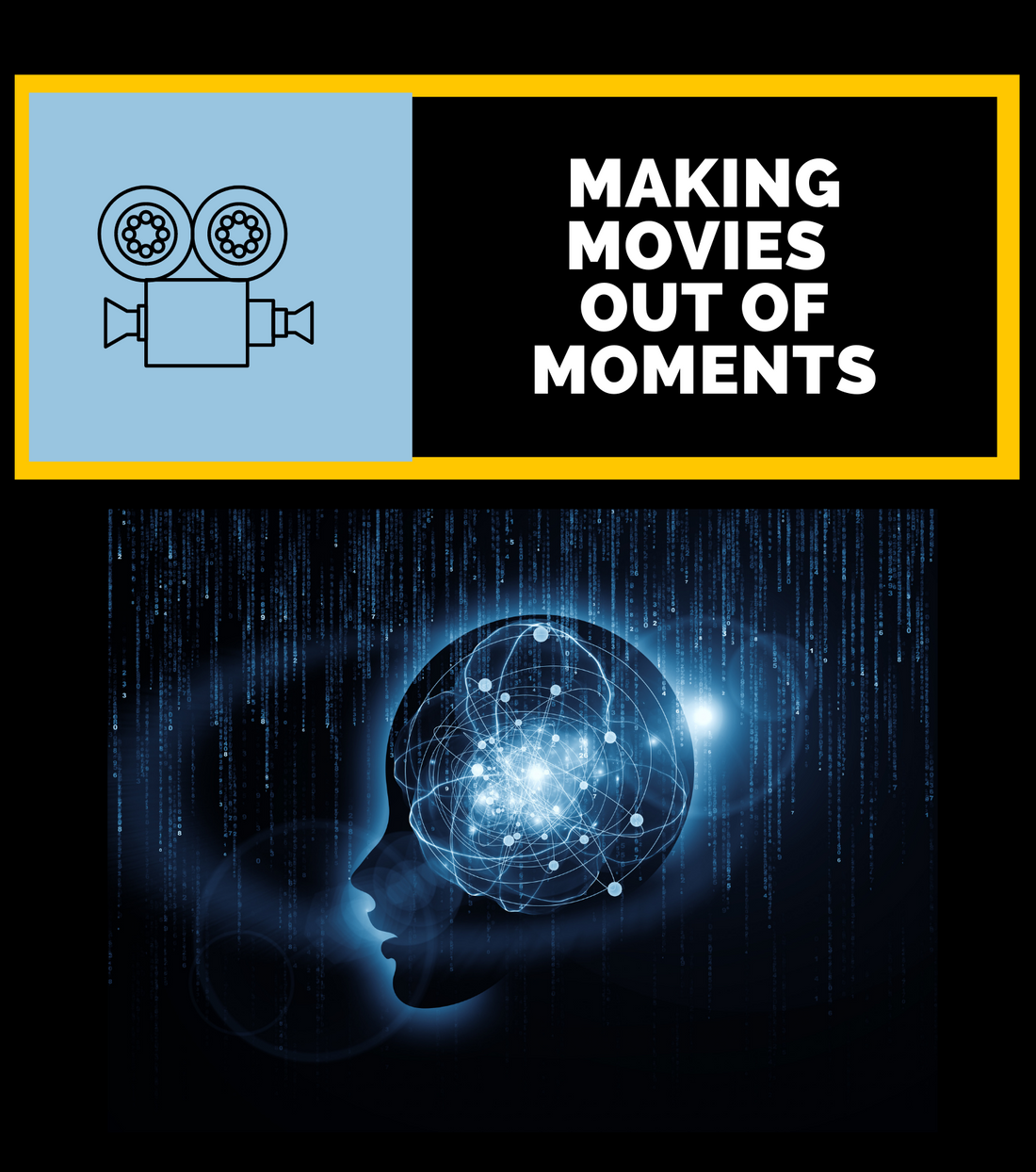
Making Movies Out of Moments
Monica JackmanOur minds are fascinating and very busy. Colorful and dramatic. They are powerful because they can protect, entertain, motivate, stress, and terrify us with the stories and movies they make.
Our brains have been designed to analyze every sensation or stimulus that comes into our awareness and determine whether it is good or bad- automatically comparing it to past experiences, and filtering it through our judgments, biases, preferences, memories, fears, and so on.
This all happens too fast for us to notice... until we feel the effects of what our brain has decided. The outcome of that decision can be our experience of emotions such as anger, sadness, and joy, body sensations such as muscle tension and increased heart rate, and impulses to avoid and flee, fight, or approach a situation. All of this works to create a conscious perception of what we have experienced, and to store a memory of it. It is for this reason that everyone can witness the same event, see the same social interaction, hear the same piece of music, and yet interpret and remember it in completely different ways.
We all have different filters on our lenses, different soundtracks and scores playing in the backgrounds of our memories, and different perceptual special effects that we use to edit the raw footage that is life and create movies that we believe are documentaries.
We get caught up in our own movie versions of reality because they are so compelling, crafted from our deepest and most personal beliefs, biases and experiences. Sometimes they can be wonderful, and sometimes they can cause us suffering.
I teach this metaphor when I am explaining about mindful awareness and the idea that we do not see the world as it is (which is what mindfulness is all about), but rather we see the world as we perceive it. In any given moment, we do not witness the whole world, just a small part of it that we have decided to shine our spotlight of attention on, because it interests us, inspires us, nourishes us, scares us, makes us angry.
Pema Chodron talks brilliantly about the way our brains write stories about what we experience. For example, if I hear my kids opening the snack cabinet, I don't just hear the sound- within milliseconds I am crafting a story about how they shouldn't be eating more junk food, how neglected the fruit bowl is, how the fruit will surely rot and how that is money wasted, telling myself I need to be a better mom and motivate them to eat healthy foods. One sound can trigger a feeling mom guilt and the certainty that my kids are sure to be malnourished. We do this all day long in different ways. It is our nature.
Given that many people think in pictures and images, I also like the idea that we constantly are making movies out of the footage we take of the world....using perceptual post-production to add to the drama and imprint and project ourselves onto the events.
Here is an example. My son Paxton loves to be pushed on our tree swing, usually while listening to Wu Tang Clan. It is his happy place. Like anything fun and exciting in childhood, it involves some degree of acceptable risk. Here is raw footage of this happening:
And yet, lately, the branch holding the swing is starting to shake, the mosquitoes have been out in full force (Paxton is allergic) and I am always fighting back past memories of my therapy clients who have had traumatic injuries. So at times, when my husband is pushing him really high, I do not see the footage above, but create a movie that may look a bit like this:
Ok- its not quite that dramatic, but it's a different version than the one above. It is a different version than the one my husband creates.
This is the nature of our minds, to tell stories and make movies.
My point to this whole metaphor is that mindfulness is not about stopping the story telling and movie making process that can be automatic, but about recognizing that your mind is doing the creating, the post production, the masterful editing.
It is about pushing pause and reflecting on what is really happening, and what you may have added as the brilliant director, especially if it results in unnecessary suffering.
So the next time you are having an intense emotional reaction to a life situation or conflict with another person that makes you feel impulsive, uncomfortable, or causes you suffering, stop and think about the layers you may have added. Notice how masterful your mind may have been at adding lighting, music, suspense, and emotional tone to the events you witnessed.
Take a few breaths, and start filming again.
